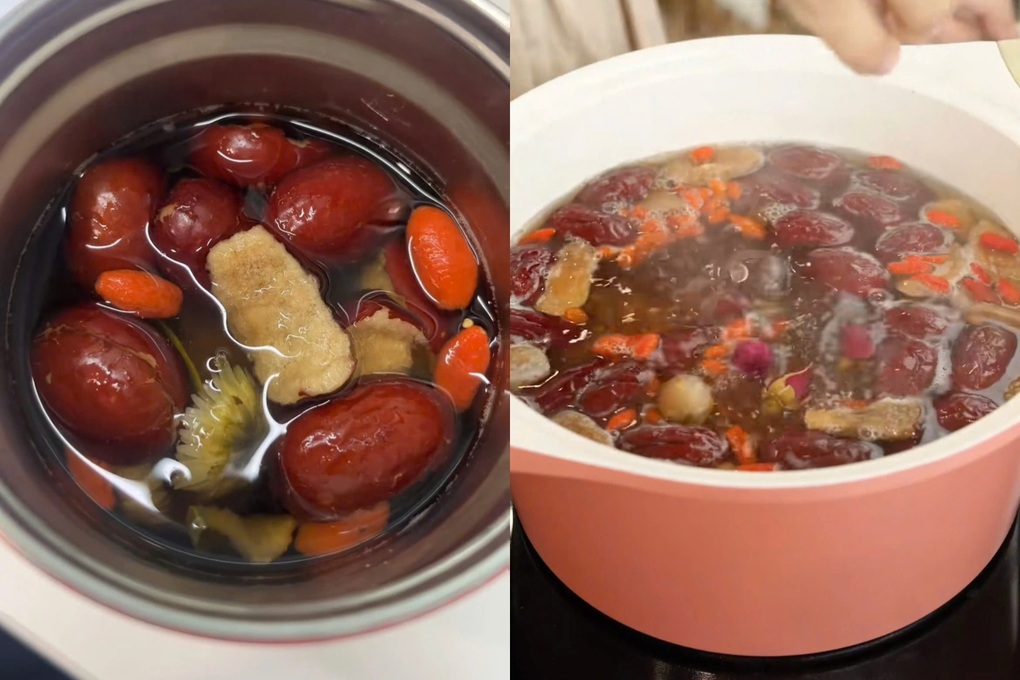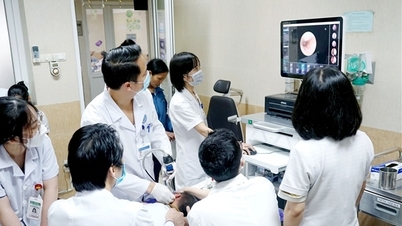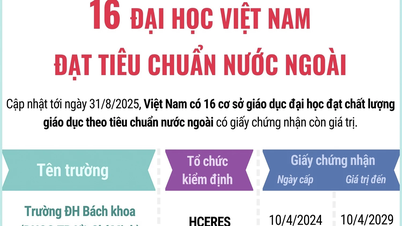In recent years, the trend of health care using natural and traditional methods has become increasingly popular.
This trend quickly spread thanks to the sharing of KOLs, beauty bloggers (beauty content creators) and people who love healthy lifestyles, making many people, especially young people, excited to learn and try it.
On social media platforms, the trend of using blood-nourishing tea made from oriental medicine ingredients such as red apples, wolfberries, angelica, astragalus, or longan is also very popular.
These teas are not only attractive because of their delicious, easy-to-drink flavor, but also because of their supposed benefits in improving health, increasing blood circulation, and giving you rosy, radiant skin.
With the harmonious combination of traditional medicine and modern style, blood nourishing tea is not only a drink but also a symbol of concern for comprehensive health. However, besides the potential benefits, this trend also raises questions about the science and proper usage to ensure safety and effectiveness.

Blood-tonifying tea recipes spread on social networks (Screenshot).
What is blood nourishment?
Responding to Dan Tri, Dr. Chu Thi Dung, University of Medicine and Pharmacy Hospital, Ho Chi Minh City - Branch 3, said that in traditional medicine, blood and energy are two core factors that reflect the body's health status.
Qi is bio-energy that regulates the function of internal organs, meridians, and circulation. Blood is a nutrient that nourishes tissues and organs, maintaining moisture and normal functioning.
Blood plays an important role in nutrition and protection of the body, providing energy, nutrients, supporting immunity and metabolism.
In women, blood and energy directly affect the menstrual cycle, pregnancy and postpartum health. When blood and energy are deficient, the body is prone to organ disorders, affecting overall health.
"At this time, women are easily tired, dizzy, have insomnia, dry skin, hair loss, and brittle nails.
In women, typical symptoms are irregular menstruation, low menstrual flow, menstrual cramps, decreased libido, or premenopausal symptoms such as hot flashes and dryness," the doctor shared.
The cause is often due to blood loss (menstruation, childbirth), poor nutrition, overwork or prolonged stress, especially, women are more susceptible due to specific physiological stages.
Does drinking tea nourish the blood?
Sharing about the recent trend of nourishing blood and energy spreading on social networks, Dr. Dung emphasized that nourishing blood and energy tea from red apples, wolfberries, astragalus, and angelica is not new but has been recorded in ancient books for many centuries.
Red dates are sweet, warm, and enter the spleen and stomach meridians, helping to replenish qi, nourish blood, and calm the mind. Goji berries are sweet, neutral, and enter the liver and kidney meridians, helping to replenish blood, benefit essence, and brighten the eyes. Astragalus replenishes qi, while angelica nourishes blood and activates blood circulation, a classic pair in traditional medicine.
These teas are gentle blood tonics, suitable for people with weakness. However, they cannot replace medication or medical treatment for severe blood deficiency that requires more intensive intervention.
Doctor Dung also emphasized that Oriental medicine tea is benign, but using it incorrectly or in the wrong dosage can cause side effects.
Using too much of angelica and wolfberry can cause heat buildup, leading to internal heat, acne, or constipation. Angelica can also increase the risk of bleeding if used with anticoagulants.
In addition, if people buy poor quality medicinal herbs, contaminated with fungi, impurities or heavy metals, it will also be harmful to their health. In particular, red apples, wolfberries, and angelica are easily counterfeited or treated with sulfur, causing respiratory irritation and liver and kidney damage if used for a long time.
Pregnant women and people with high blood pressure should be careful and not use Oriental medicine tea on their own. To be safe, you should buy medicinal herbs at reputable establishments and avoid fake products on social networks.
According to Dr. Dung, to effectively and safely nourish the blood, combining proper nutrition, healthy living habits and traditional medicine support methods is extremely important.
Specifically, in the diet, people should supplement blood-enriching foods including beef, chicken liver, eggs, longan, black beans, lotus seeds; and qi-enriching foods including sweet potatoes, shiitake mushrooms, brown rice, ginseng, and jujubes. Avoid raw, cold foods, alcohol, and coffee to avoid damaging the blood.
Besides, it is necessary to maintain a good lifestyle including sleeping on time, light exercise, and reducing stress to effectively improve blood circulation.
In addition, people can also combine additional supportive methods such as acupuncture, acupressure; foot soak with mugwort, fresh ginger or use traditional medicine as prescribed by a doctor to get sustainable results.
Some types of blood-tonifying tea that can be made at home
Dr. Dung also suggests some types of blood-tonifying tea that people can make at home.
Red apple - wolfberry tea includes 10g red apple and 10g wolfberry, steeped with 500ml boiling water, drink warm during the day. This is a simple tea, easy to make, suitable for daily use.
Astragalus - Angelica tea includes 10g Astragalus, 5g Angelica, 5g red dates, boiled with 500ml water until 200ml remains, divided into 2 doses/day. This tea helps replenish qi and nourish blood effectively.
The Four-ingredients Decoction (mild variant) includes angelica, rehmannia glutinosa, white peony root, and ligusticum wallichii (5-10g each), decocted and taken 5-7 days/month. This is a traditional medicine that provides comprehensive support for qi and blood.
Dr. Dung also noted that medicinal herbs should be purchased at a reputable Oriental medicine pharmacy, cleaned, and possibly roasted to increase effectiveness. The tea should be used in 7-14 day periods, with a 3-5 day break to avoid overuse.
People with heat in their body, prone to acne and constipation should limit the regular use of red dates and wolfberries. People with underlying medical conditions such as heart disease, blood pressure, and blood clotting disorders should consult a doctor.
Source: https://dantri.com.vn/suc-khoe/su-that-trao-luu-uong-tra-bo-khi-huyet-tren-mang-xa-hoi-20250917194015691.htm


![[Photo] General Secretary To Lam chairs the meeting of the Central Steering Committee on preventing and combating corruption, waste and negativity](https://vphoto.vietnam.vn/thumb/1200x675/vietnam/resource/IMAGE/2025/9/29/fb2a8712315d4213a16322588c57b975)
![[Photo] Many streets in Hanoi were flooded due to the effects of storm Bualoi](https://vphoto.vietnam.vn/thumb/1200x675/vietnam/resource/IMAGE/2025/9/29/18b658aa0fa2495c927ade4bbe0096df)

![[Photo] General Secretary To Lam attends the ceremony to celebrate the 80th anniversary of the post and telecommunications sector and the 66th anniversary of the science and technology sector.](https://vphoto.vietnam.vn/thumb/1200x675/vietnam/resource/IMAGE/2025/9/29/8e86b39b8fe44121a2b14a031f4cef46)
![[Photo] National Assembly Chairman Tran Thanh Man chairs the 8th Conference of full-time National Assembly deputies](https://vphoto.vietnam.vn/thumb/1200x675/vietnam/resource/IMAGE/2025/9/29/2c21459bc38d44ffaacd679ab9a0477c)
![[Photo] General Secretary To Lam receives US Ambassador to Vietnam Marc Knapper](https://vphoto.vietnam.vn/thumb/1200x675/vietnam/resource/IMAGE/2025/9/29/c8fd0761aa184da7814aee57d87c49b3)



































































































Comment (0)